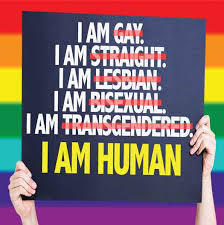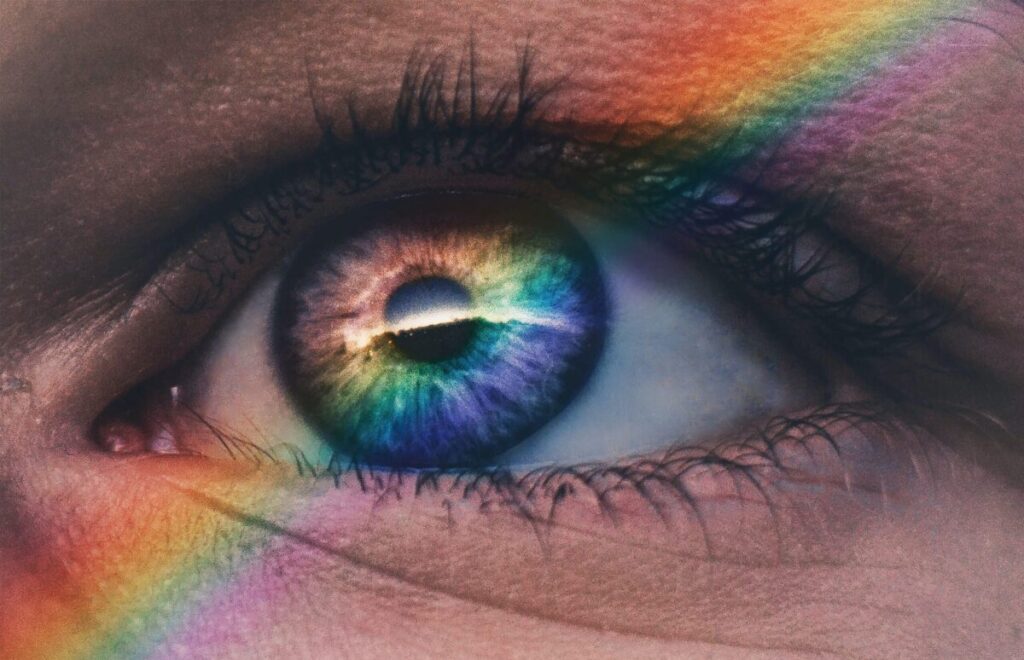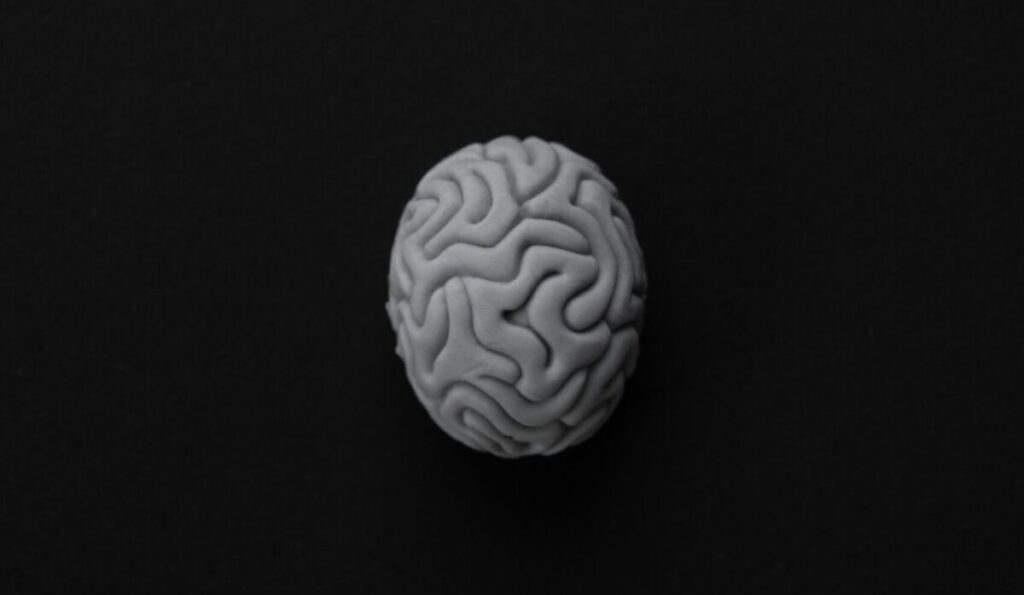
This is a reprint of “Conversion Therapy: Learning to Love Myself Again,” an Article By Luke Romesberg, February 27, 2017
When I was 14, I came out as gay to my parents. I was confident in my decision and felt ready for the world to meet the real me.
Many argue that I was too young, but I had recognized and understood my feelings for a very long time. I just needed everyone else to catch up.
I was raised Catholic — not strict Catholic, but Catholic nonetheless. I attended church with my mother every Sunday, and also catechism class before or after Mass. My father always stayed home. He is Lutheran but quit practicing many years ago. Regarding politics, my parents were, and are, Republican. As with religion, my mother took an active role in this area. I grew up in a small town in Pennsylvania, made up mostly of middle-class Caucasians, and always had dreams of leaving for a large city.
Athletics were a large part of my childhood and adolescence. Ice hockey, football, baseball, soccer — if it was available, my father had me involved. As it turns out, I was not bad at athletics, but not fantastic either. My academics were much more important to me. This seemed to be a source of disappointment for my father, which I believe fractured our relationship at that time. Technology also fascinated me. I spent much of my time playing video games and surfing the internet. The internet would become one of my only outlets during some of the most painful times in my life.
Coming out
Despite aspects of my upbringing that many would regard as combative to the LGBTQ community, my hopes for coming out remained positive. I devised a plan. Being a millennial, my instinct was to scour the internet for thoughtful ways to reveal my identity to my parents.
After much research, I decided a letter and CD would suffice. I wrote a long, detailed composition explaining many aspects of my identity that I had kept hidden. I expressed my feelings that I was a Democrat, was done playing sports in high school and identified as part of the LGBT community. By the time my parents were reading it, I would already be at a friend’s home, where I planned to stay for a few days (also noted in my letter).
Feelings of pride and happiness surrounded me. At the same time, anxiety consumed me. I was nervous yet ready. I assumed that revealing my identity would be the most awkward aspect of coming out. Little did I know then that those feelings of awkwardness would only increase for many years.
My perfect coming-out plan crashed and burned one fateful night. During a shopping trip, I purchased a baby pink, size-small T-shirt. I loved that shirt. I would likely still be wearing that shirt if my mother had not thrown it away — and if I could still fit into a size small — but that is another story for another day.
The shirt was flamboyant. That was my goal. I felt comfortable in my identity and was ready not just to come out, but to burst out. I had been stifled in a world of sports and overt masculinity for years. This pink shirt gave me hope. It would be the catapult to my coming out.
The shirt forced people to make assumptions about me, and I welcomed them. What I had not considered, however, were the assumptions my parents were making. The sight of me wearing this vibrant shirt triggered something in them. They became more inquisitive and increasingly watchful. They asked questions: What are you doing? Where are you going? Why do you spend so much time on the computer? Who are you talking to? Who are you texting? So. Many. Questions.
Something changed. We all knew something was different, but nobody vocalized it.
Everything came to a head one night when my father walked into my bedroom holding my pink shirt. With some colorful and hurtful language, he told me the shirt made me “look” gay. His anger seemed to grow with every passing statement.
My anger also grew. I walked to my bookshelf, snatched the letter hidden within a book, and threw it at him. My parents would never receive the CD.
I watched as my father’s anger turned to sadness. He read the letter, and tears formed in his eyes. To this day, I have seen him cry only twice — at his father’s funeral and on this night.
This is when my mother entered the room. “What’s going on?” she asked, concerned. My father handed her the letter. She cried. She screamed. She shouted, “Oh, my God!” Repeatedly. She paced around the house. My father was practically frozen.
I remember feeling upset, but nowhere near their level. What had just happened? Was this really that terrible? To my parents, it was.
My mother rushed to my grandparents’ home, only three houses away. She informed them of the situation. I wasn’t present, so I can only imagine the state of panic that immediately filled the home. My grandparents on my mother’s side held even more intense religious and political views. This was not looking good for me.
I went to sleep that night, tears in my eyes and nervous to attend school the next day. What I had thought would be an awkward, yet happy, moment with my parents turned out to be anything but.
Conversion therapy
I revealed my sexual orientation on a Tuesday. By Friday my parents had arranged a meeting with a therapist. They told me he was a religious counselor. This seemed frightening already. He was going to “fix” me. He would make everything “better.”
I didn’t understand exactly what this meant. I didn’t need fixing. I was fine with my identity. I thought maybe my parents needed fixing.
Given that my town was so small, meeting with a conversion therapist was going to be an ordeal in and of itself. My mother’s sister, who had been informed of the situation, located a counselor. They told me he was “the best.” His office was in Philadelphia, nearly six hours’ distance from my hometown. My parents demanded that I miss school on Friday. Despite my protests, we would make the trip to Philadelphia together to meet him.
My memories of this initial session are blurry, although I remember being hounded with questions. Was I ever sexually assaulted? No. Had I ever experimented with same-sex partners? No. Was I happy with my body? No. I was 14 years old and going through puberty. Of course I wasn’t happy with my body.
The questions continued. Did I want to be straight? “Yes,” I answered, even though my brain was saying, “No. Hell no.” I wondered, “Who is this man? What do these questions have to do with my sexual orientation? What is he going to do to me? How is this stranger going to help me change something that I do not want to change?”
Over the course of the next year, I would be a participant of conversion therapy. My sessions were weekly phone conversations that cost my parents a small fortune. The sessions began as an hour in length and then decreased to 30 minutes. As I “improved,” my sessions decreased further to an hour every two weeks and, eventually, to 30 minutes every two weeks. The sessions would occur until I was healed of all of my sexual orientation issues. I was going to emerge a heterosexual young man.
My body was a frequent topic in our sessions. My therapist seemed obsessed with it. I was ordered to take off my shirt and look in the mirror. He would then say, “Please describe what you see. Tell me what parts of your body make you insecure.”
I told him that my stomach was a source of insecurity. He encouraged me to describe it. Allow me to repeat: I was a teenager. My body was changing daily. Many teenagers are insecure about their bodies. The last thing they want to do is discuss the details of these changes with a strange man on the phone.
Nevertheless, my therapist told me that my insecurities were likely negatively impacting my feelings of masculinity. My low levels of masculinity were a reason that same-sex attractions were occurring.
“Same-sex attractions.” He always said that. It was a way to pathologize my feelings. This term was used to separate me from my identity. I was not to refer to myself as “gay.” I was not gay. I was suffering from same-sex attractions.
This is where he first began to break me down. He created some cracks, which would only grow in time.
During the course of therapy, my life at home was changing rapidly. I was now being watched. I was forced to defend all of my actions. I was no longer allowed to watch certain TV shows. If anything surrounding the LGBTQ community was mentioned, I was never allowed to watch that show again. My parents began searching my phone records and forced me to call every number they did not recognize while they listened. They found and called a suspicious number only once but, thankfully, he immediately hung up and blocked my number.
My text messages were read. All of my contacts were questioned. My instant messaging account was reviewed. My computer was moved to the living room. When I used it, my mother would attempt to catch me doing something wrong. She caught me talking to a guy once, but I cut the computer’s power before she could read the conversation. My parents seemed to blame technology for making me gay. My mother once accused me of looking at a stranger the wrong way and swore that I secretly knew him.
I also had to clarify to my mother that I was not a pedophile and had no interest in children. I was no longer allowed to hang out with girls. My former best friend became less than an acquaintance. My parents condemned me for going shopping. I was allowed to wear only certain clothes.
Everything about my life that had once been comforting was stripped away. I was being forced back into the closet. My love for myself was disappearing.
As therapy continued, the therapist informed me that the combination of a “sports dad” and an “overbearing mother” were additional reasons that I was suffering from same-sex attractions. On a related note, he told me that my volatile relationship with my father and my noninterest in sports also contributed to my same-sex attractions. My father and I were instructed to spend more time with each other. Father and son bonding time would surely change my sexual orientation.
My father and I awkwardly began attempting to hang out. We would go out to eat, go to the mall, go see a movie. You know, a stereotypical girls’ night out.
My therapist even suggested that we try more “masculine activities,” such as visiting the batting cages (something I still despise) or throwing a football. One night, my father and I went to see King Kong together as a supposedly masculine activity. At the end of the movie, I left in tears, crying at King Kong’s tragic death. I doubt that is what either my father or the therapist had in mind.
Despite some setbacks, I was making “progress.” I informed my therapist that I was going through a gray area regarding my sexual orientation. This was all nonsense of course. I was still just as gay as ever; I was just telling him otherwise.
I told the therapist my gray area consisted of a lack of sexual attraction to either sex. He informed me this was normal and represented the lessening of my same-sex attractions.
Little did he know that most of my responses could now be credited to Google. That is the power of technology and the internet. I had researched and became an expert on conversion therapy. I now told him everything he wanted to hear. As a result, I was able to trick him into believing that I was changing.
Therapy continued. I was making strides, leaps and bounds even. I was moving quickly. I was turning into a proud heterosexual. In reality, nothing about my sexual orientation was actually changing. But my previous feelings of comfort and confidence were gone. I felt trapped. My parents and therapist analyzed everything I did. Being the authentic me was no longer an option. I was a stranger in my own body. My insecurities grew. My feelings of self-doubt and depression increased. I was forced back into the closet. The love I had for my identity vanished.
Therapy ended roughly a year after it began. I was “cured.” I finally felt a taste of freedom.
However, despite no longer having to deal with my therapist, my parents now believed I was “fixed.” I feel as though they were in denial, just as I was pretending to be straight. We were all lying to one another, and we secretly knew it.
Everything was not fine. I was still gay. My parents knew it. I knew it too, but we were now back to square one. The next four years proved to be draining. Coming out once was difficult enough, but now I had to find the courage to come out again.
Life after conversion therapy
When I was 17, my parents seemed either in complete denial about my sexual orientation or had silently accepted that I was likely going to remain my gay self. Either way, we had not engaged in an actual conversation regarding my sexuality.
Eventually, I began working for a major political campaign in the Democratic primary race in 2008. Here I would meet many like-minded individuals and fellow members of the LGBTQ community. I even met a guy with whom I would have a short-term relationship while he stayed in town for the primary. After many years of feeling trapped and questioned for my every move, I had finally found what I considered a safe zone, an oasis.
My parents weren’t supportive of the Democratic Party and didn’t approve of my volunteerism, but at least they couldn’t accuse me of things when they knew where I was. I began heading to the campaign office almost every day. The office officials quickly promoted me from volunteer to intern, which ultimately helped in my college searches and even landed me a scholarship. This was an extremely positive experience for me. I enjoyed my time spent there and met amazing people who provided me with feelings of inspiration, confidence, courage and, above all else, hope. The love I once had for myself began growing again.
Armed with my newfound positivity and support system, I was ready to once and for all set the record “straight” on my same-sex attractions. I arrived home from a particularly good night at the campaign office. My father was watching television but eventually began making his way to bed.
I stopped him as he headed up the stairs. I told him that “it” was out. I no longer cared. There was nothing they could do to upset me or tell me who I was. I was probably smirking when I told him.
My father’s face twisted. He didn’t say much but did mention being nervous and embarrassed about what everyone else would think. I didn’t care what anybody else thought. I had just come out — again.
This time it was different. I was older. I was more mature. There would be no argument. I loved myself again.
Over the course of the next few months, I began coming out to others, including my close friend. In midsummer, I put my “status” on Facebook. I received messages from concerned classmates and family members: “Your Facebook has been hacked!” I told them, no, it was true. I was gay. I was no longer afraid to reveal it.
I received unwavering support. People sent me positive messages. I entered my senior year of high school with the support of so many. My love for myself blossomed. I was back to my old self. My parents began adjusting too.
I would go on to college in Pittsburgh to study journalism. However, I would quickly change my major to psychology. My time in conversion therapy provided only one positive quality: It lit a flame in my heart and created a burning passion for caring and providing for the LGBTQ community.
I knew I wanted to make a difference. I wanted to be on the other side of this battle. I wanted to do the complete opposite of what my therapist had done for me.
Over time, my parents grew and changed as well. They found love too. Now they accept and support me in all of my decisions. It is truly amazing how things can change.
Today
In 2013, I moved to Chicago, where I would eventually receive my master’s degree in counseling and become a licensed professional therapist. Immediately after, at the age of 24, I entered a doctoral program in counseling education and supervision. This leads me to where I am today — and to the ultimate point of this story.
It is essential that the effects of conversion therapy are made widely known. I believe this subject is still in need of increased awareness. Many do not understand how harmful conversion therapy is, and others are entirely unfamiliar with it. Even though my experience with this “therapy type” was not nearly as severe as what others have gone through, it still caused issues that I had to battle.
I was ultimately able to make it through the difficult times these events caused, but many others in my situation do not. As reported by an American Psychological Association task force, people who have gone through conversion therapy face 8.9 times the rates of suicidal ideation, 5.9 times higher rates of depression and are three times as likely as their peers to engage in the use illegal substances and risky sexual behaviors. These statistics simply cannot be ignored. The issues listed are all too familiar for me, even with my somewhat minimal exposure to conversion therapy. It took years of personal reflection and growth, finding forgiveness toward my family, and learning to love myself again to overcome the damages caused by this so-called “therapy.”
As counselors, it is imperative that we do not impose our own value system on our clients. We must always work to ensure that we do not commit any acts of maleficence. Conversion therapy is, without doubt, an act of maleficence. If we find ourselves disagreeing with someone’s sexual orientation, it may be time to take a step back and evaluate our own principles, morals and why we chose to enter this field.
It is our job to know and understand the facts behind conversion therapy. It is not our job to tell people how to live or to attempt to change a client. Rather, we must always work with our clients to support them in their true identities.


